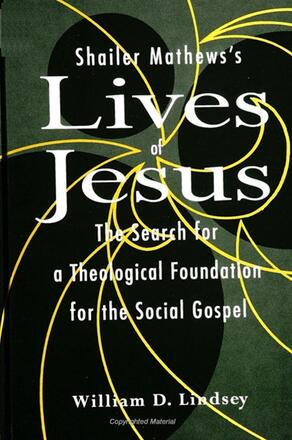
Shailer Mathews's Lives of Jesus
The Search for a Theological Foundation for the Social Gospel
Alternative formats available from:
Reappraises the work of Shailer Mathews, a leading but long-neglected theologian of the social gospel movement whose work prefigures contemporary liberation theologies.
Description
This book focuses on a significant, but neglected, leader of the social gospel movement, University of Chicago theologian Shailer Mathews (1863-1941). In two widely read lives of Jesus--The Social Teaching of Jesus (1897) and Jesus on Social Institutions (1928)--Mathews laid a foundation for social gospel theology that dealt carefully and creatively with the charge that the social gospel enculturates Christian faith. Lindsey's book engages in a close reading of the two Mathews books, and concludes that Mathews's foundation for social gospel theology prefigures political and liberation theologies in important respects, and thus deserves reappraisal.
William D. Lindsey is author of Ethics and Morality and Singing in a Strange Land, and an adjunct faculty member at the Loyola Institute for Ministry, New Orleans.
Reviews
"An altogether brilliant book, a major scholarly and literary achievement, a study in the history of ideas that illuminates their contemporary relevance. "--Gregory Baum, Faculty of Religious Studies, McGill University
"Throughout this book Lindsey demonstrates a good sense for the historical embeddedness of social arguments. That sense of history--in combination with his broad familiarity with various academic disciplines--results in a rich exposition of Mathews's thought in terms both of its inner logic and of the public give and take that was peculiar to Mathews's own times. Mathews emerges as a historical actor at the very time that he himself was discovering that Christian faith is primarily a field of reasoned and engaged interaction between actual humans, not merely a realm for the applying pre-established truths. Both Lindsey's own analytic methods and his presentation of Mathews are nuanced blends of medium and message. Lindsey reads well what was going forward with Mathews because Lindsey himself is a master of the cognitional and ethical dimensions of human discourse. "--Leon Hooper, Woodstock Theological Center, Georgetown University